Pharmacists in Aleppo help families get the medicines they need
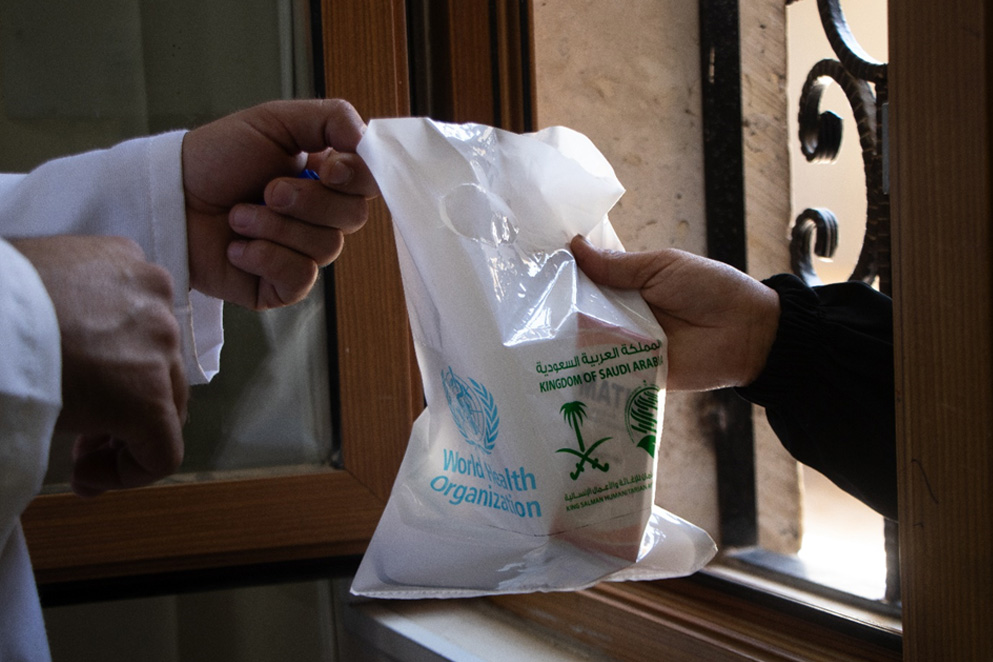 A pharmacist hands medicines to a patient at a KSrelief-supported Ihtimlat Health Centre in northern Aleppo. Photo credit: WHO24 September 2025, Aleppo, Syrian Arab Republic – At Dabiq Health Centre, pharmacist Ali Al-Mustafa checks a prescription carefully before handing a mother her child’s medicine. A father of four himself, Ali understands the reassurance families feel when treatment is within reach.
A pharmacist hands medicines to a patient at a KSrelief-supported Ihtimlat Health Centre in northern Aleppo. Photo credit: WHO24 September 2025, Aleppo, Syrian Arab Republic – At Dabiq Health Centre, pharmacist Ali Al-Mustafa checks a prescription carefully before handing a mother her child’s medicine. A father of four himself, Ali understands the reassurance families feel when treatment is within reach.
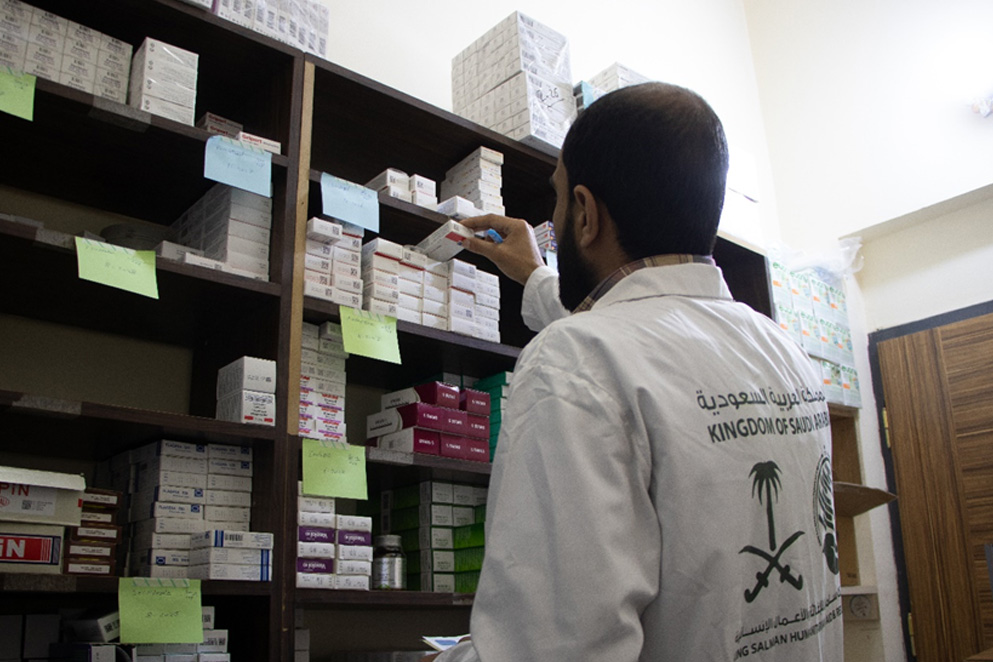 Pharmacist Ali Al-Mustafa arranges medicines at Dabiq Health Centre. Photo credit: WHO“When I give medicine to a sick child, I think of my own children,” he says. “Families come here worried, but when they leave with what they need, I feel I have done something important for my community.”
Pharmacist Ali Al-Mustafa arranges medicines at Dabiq Health Centre. Photo credit: WHO“When I give medicine to a sick child, I think of my own children,” he says. “Families come here worried, but when they leave with what they need, I feel I have done something important for my community.”
Across Syria, just 57% of hospitals and 37% of primary health care centres remain fully functional. In northern Aleppo, the need for support is critical. With support from the King Salman Humanitarian Aid and Relief Centre (KSrelief), WHO and health partners are sustaining more than 50 health facilities across the region. This assistance ensures hospitals, clinics and maternity centres can stay open, provide medicines and equipment, support staff salaries and strengthen referrals – keeping services running as the country moves towards recovery and rebuilding.
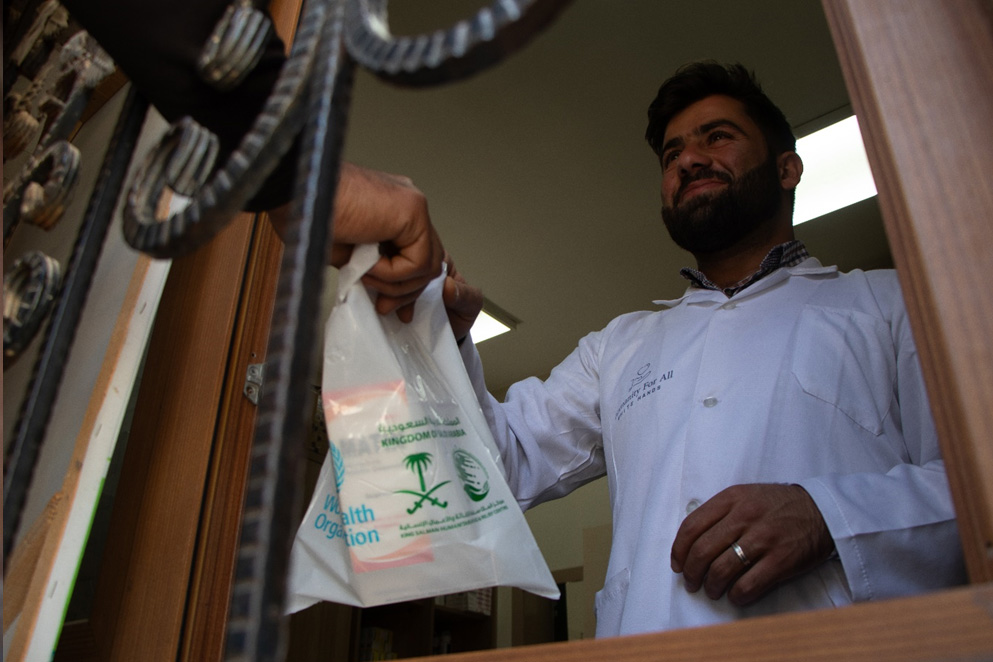 Pharmacist Abdulrahman Kanjo hands prescribed medicines to a patient at Ihtaimalat Health Center in Azaz. Photo credit: WHOSince November 2024, around 565,000 people in Aleppo have benefitted from health services across 50 facilities in Al-Bab, Azaz and Jarablus districts. In the same period, over 935,000 medical consultations were provided, covering primary, secondary and specialized care.
Pharmacist Abdulrahman Kanjo hands prescribed medicines to a patient at Ihtaimalat Health Center in Azaz. Photo credit: WHOSince November 2024, around 565,000 people in Aleppo have benefitted from health services across 50 facilities in Al-Bab, Azaz and Jarablus districts. In the same period, over 935,000 medical consultations were provided, covering primary, secondary and specialized care.
Pharmacists are a vital part of this effort. They are the final link in the chain of care: the ones who dispense medicines prescribed by doctors and midwives, explain how to take them safely, and offer reassurance to anxious families.
At Ihtaimalat Health Center, pharmacist Abdulrahman Kanjo notes how critical access is for his community.
“People trust us to give them the right medicines. Without this centre, many families would have nowhere else to go,” he says. “I remember one morning a young man came rushing in with his elderly father. The doctor prescribed medicine for his heart condition, and they were afraid it wouldn’t be available. When I handed it to them, I saw their relief immediately. These moments remind me why our work matters.”
 Pharmacist Ghufran Hassan Al-Othman writes dosage instructions on a medicine box for patients at Al-Bab Health Centre. Photo credit: WHOIn Al-Bab, pharmacist Ghufran Hassan Al-Othman, who has worked at the local health centre for years, sees her role as deeply connected to her community.
Pharmacist Ghufran Hassan Al-Othman writes dosage instructions on a medicine box for patients at Al-Bab Health Centre. Photo credit: WHOIn Al-Bab, pharmacist Ghufran Hassan Al-Othman, who has worked at the local health centre for years, sees her role as deeply connected to her community.
“Parents come here tired and worried, especially when their children are sick,” she says. “I make sure to explain clearly how to take the medicines and reassure them that they are not alone. I want every child here to grow up healthy, and every parent to feel supported.”
> Others, like Mohammad Adnan Weis, have faced displacement yet continue to serve. Originally from Aleppo city, he lost both his home and the pharmacy he once ran during the conflict, but he never gave up his profession.
“Being a pharmacist allows me to give back to my community, even while rebuilding my own life,” he says. “I hope one day to see Syria’s health system strong again, where no family has to fear losing access to care.”
At Al-Sukkariyah Health Centre in the countryside of Al-Bab, pharmacist Mahmoud Sheikh Saleh, a father of seven, reflects on the shared struggles of the families he supports.
“With so many children depending on me at home, I understand what other parents feel when they come here. If medicine is available, hope is available,” he says.
“Every time we can give patients what they need, it eases their burden. For families who have lived through so much, even the certainty that services will continue tomorrow gives them strength to carry on.”
With KSrelief’s support to operate facilities, WHO and partners are ensuring that as Syria transitions to a unified national health system, services continue without interruption – keeping medicines within reach for families and supporting recovery, dignity and health for all.
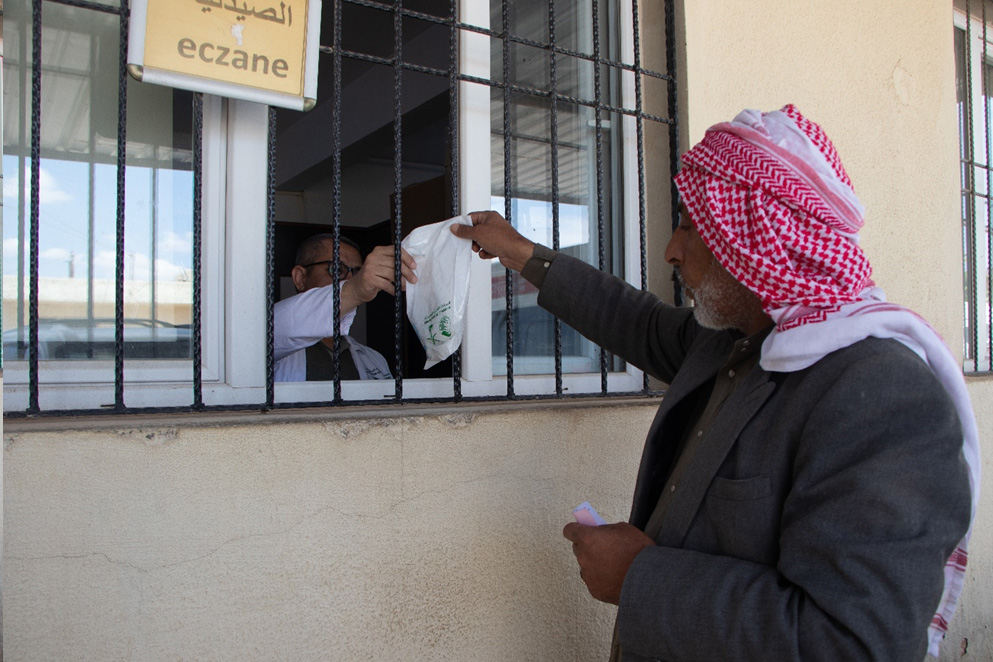 Pharmacist Mohammad Adnan Weis hands prescribed medicines to a patient at Baroza Health Centre. Photo credit: WHO
Pharmacist Mohammad Adnan Weis hands prescribed medicines to a patient at Baroza Health Centre. Photo credit: WHO 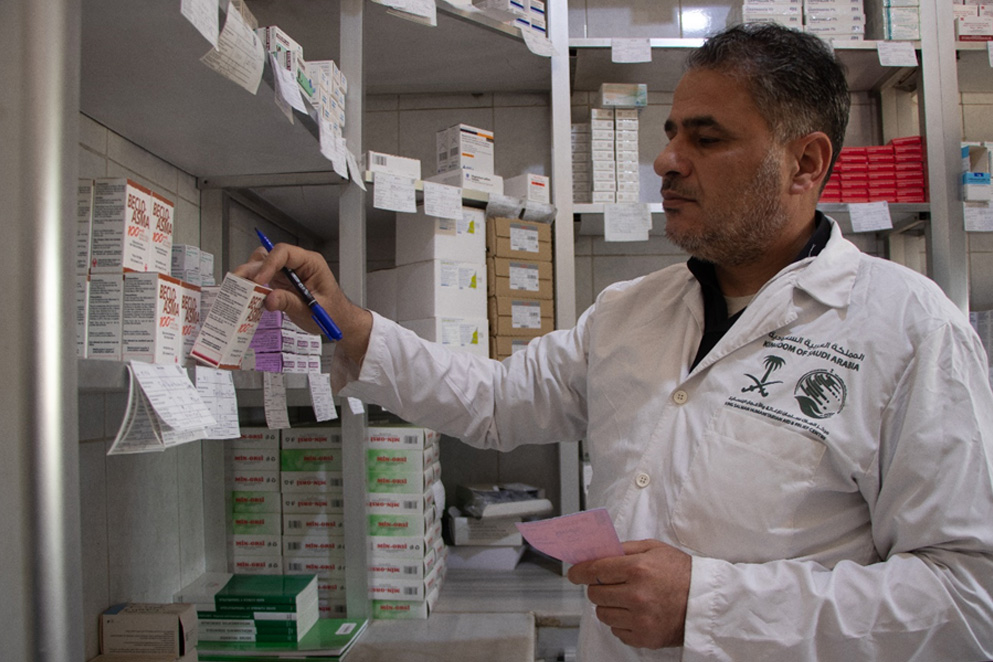 Pharmacist Mahmoud Sheikh Saleh prepares medicines for patients at Al-Sukkariyah Health Centre in the countryside of Al-Bab, Aleppo. Photo credit: WHO
Pharmacist Mahmoud Sheikh Saleh prepares medicines for patients at Al-Sukkariyah Health Centre in the countryside of Al-Bab, Aleppo. Photo credit: WHO







